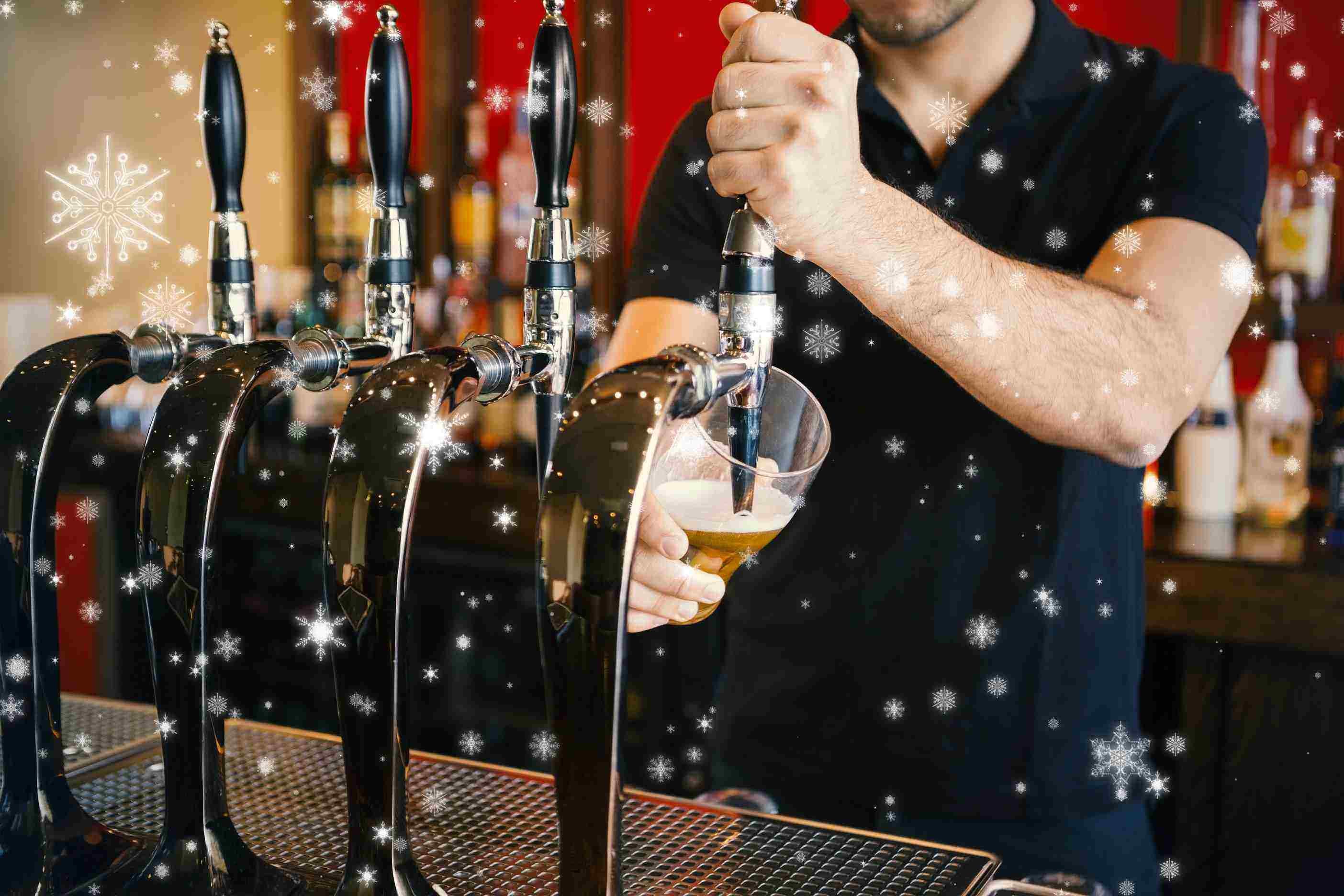7-Day publicans settling for 5-day weeks

In its latest Tourism Barometer survey Fáilte Ireland found that 90% of pubs and bars currently recruiting are experiencing difficulty in doing so and among those, 84% struggle to find bar staff.
Contemplating closure, one Kerry publican in the report explained, “Time to re-examine my business and say is it time to close. I see no future in the pub/hospitality business in Ireland”.
Another publican in County Offaly stated, “Habits have changed with many people, lifestyle changes too. I don’t expect to exceed the 75-80% turnover compared to 2019 ever.”
And a Carlow publican noted, “Can’t afford to keep the place open much longer unfortunately due to energy costs and people not having much disposable income”.
Another key finding, this time from last year’s Fáilte Ireland research, was the reported deterrent of having to work lots of unsocial hours with little choice in the matter.
Some employers now say they’re trying to address this – actions include a four-day working week, a reduction in business opening and more flexibility given to employees to say which hours they can and can’t work.
Only operating on fumes midweek?
“Go into a pub midweek – and nothing is happening!”
So believes John Byrne of Dundalk’s Hill Bar who’s one of a number of publicans considering closing completely on Tuesdays and Wednesdays.
Since reopening post-pandemic he’s found that Monday and Thursday turnovers are quite strong, but Tuesday and Wednesday has died a death.
“All of those relying on the ‘leisure pound’ have to be affected by the rise in the cost of living,” he maintains, “Anyone going into a restaurant or pub these days is only giving us their discretionary spend from whatever’s left after food, drink, heating and housing have been spent.”
Is it worth the expense of opening on such quiet days he wonders?
“The regular in our pub – the ‘local’ – is coming in less regularly because they lack that spending power. The result is that a visit to the pub is now becoming more of an ‘event’ than just an everyday ‘normality’.”
This shrinking ‘leisure pound’, as John calls it, undoubtedly has to be taken into account alongside the increased extra costs resulting from a number of factors, not least the situation in Ukraine.
Special occasions like after-weddings and similar functions keep him going these days.
“Events and functions are making use of the pub now as opposed to there being a local or regular trade,” he explains.
And the rising cost of opening at all has to be considered.
“Fillet steak has gone off the menu in some outlets as the extra the €10 required is just not there and chicken fillets have gone up 90% or more in the last 12 months,” he reports.
That’s before we get into ‘debt warehousing’ during the pandemic which has not been taken into account either, he adds.
“The government seems to be telling us that there’s €3 billion warehoused which has to be paid back. If we’re only operating on fumes or struggling at the moment how are we going to pay back-taxes?” he wonders.
A combination of these soaring costs plus the lack of staff and the changing lifestyles of the locals is making trading conditions so difficult that some pubs and bars struggle to remain open, concludes Fáilte Ireland in its most recent Tourism Barometer.
“No longer just topline & turnover”
One such pub that had heretofore been operating a five-day week was that of VFI President Elect John Clendennen in Giltraps Bar in Kinnity, County Offaly, who’d had to close the premises on a Tuesday and Wednesday because he found it cheaper to be closed than open on those days “… as part of bringing our costs down”.
The mid-week break also gave his hard-pressed staff a chance to take a breather.
“The cost of electricity has more than doubled in the last two years and we’re also looking at consumer behaviour mid-week, where attitude and behaviours have changed – and we must adapt accordingly,” he states.
But the thought of closing for two days a week was a big family decision.
“Closing for two days a week can be a big factor in terms affecting local trade and customers so there are a lot of stakeholders in this.
“It’s no longer just about topline and turnover, it’s as important to look at the expense of it and the bottom line now. So while we need innovation to generate turnover we need to be astute as to what’s happening expense-wise.
“If you’re initially looking at a seven-day week and taking two days out of it, then that’s a 28% reduction in fixed costs,” he reckons, “Now if you can get busier at the weekend and get turnover up on those days that you are open, you’ll get more turnover for 28% less fixed costs.”
Today, however, Giltraps is back open trading seven days a week (since the start of June) but he’d have no hesitation in closing midweek again next Winter if it’s the best thing for the business.
Down more to staff levels in Dublin
Whilst the footfall situation is less grave in Dublin, Tuesday and Wednesday closing is part-and-parcel of the Jobstown House in Tallaght – but for reasons more familiar to vintners.
“We close on Tuesdays and Wednesdays because traditionally, pre-Covid, Monday was one of our busiest days of the week,” says proprietor John Kilbride, “Ultimately, it’s down to staff levels as we don’t have the same level of staff as pre-Covid.”
Jobstown House has been in situ for nearly 55 years with some of the staff having been there themselves for 25 to 30 years. John originally thought he could have opened on a Tuesday or Wednesday with part-time staff “… but I found myself uncomfortable with the notion of more inexperienced part-time staff in the pub.
“So now all our senior staff have Tuesday and Wednesday off and some odd weekend days off too – but for me mid-week closing is more about staffing levels, not necessarily about running costs but about maintaining standards through our ‘career’ staff.”
At the moment it’s working out well and the staff are happy with the arrangement, he says. The customers seem just as happy.
“A lot drink here as they know we’ve really experienced and skilled staff and they understand our logic too,” he says.
“Five months on since pubs were permitted to fully reopen the trade is still finding its feet,” points out the VFI’s Communications and Public Affairs Manager Brian Foley, “So much changed during Lockdown, not least consumer habits, that it remains difficult to frame an overall opinion about where the trade finds itself.
“Many pubs are doing well, which is hardly surprising given the pent-up demand created by prolonged closure. The staffing issue was flagged well in advance of reopening and continues to be a massive problem while the cost of doing business will soon overtake staffing shortages as the biggest problem facing the trade.
“From talking to publicans across the country it’s clear many are working to find solutions that work best for their pubs. Some find that closing early in the week makes sense but what’s clear is that there’s a new fluidity to publicans’ thinking. What wouldn’t be countenanced pre-pandemic is now in the mix, a fact that underlines the constant need to follow consumer sentiment. We have to give the public what they want and when they want it.”

John originally thought he could have opened on a Tuesday or Wednesday with part-time staff “… but I found myself uncomfortable with the notion of more inexperienced part-time staff in the pub”.









